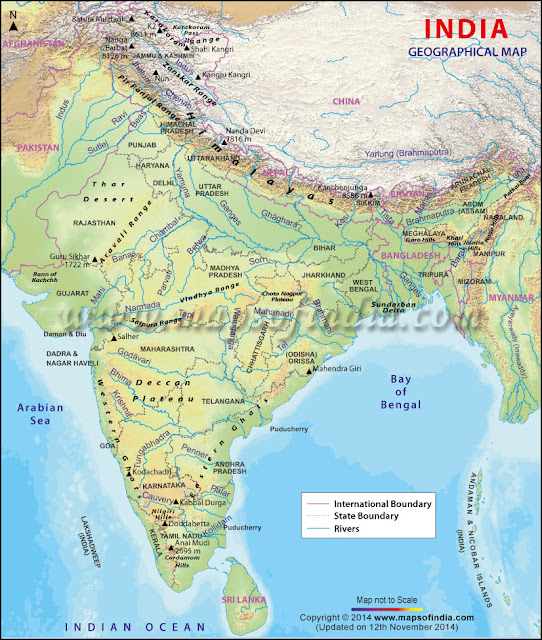Important Points about Arunachal Pradesh
ssc preparation, important competetion questions, current affairs of india, latest question asked in competetion papers,
Important Points about Arunachal Pradesh
Situated at the most northeastern point of India, Arunachal Pradesh is a state rich in culture, heritage and potential. The state has immense potential for hydropower development, which remains untapped because of land dispute with China. Here’s more for you to read about Arunachal Pradesh:
Arunachal Pradesh | |
| Capital & Major Cities |
– Itanagar
– Tawang, Bhismaknagar, Malinithan, Bomdila, Basar, Akshiganga, Ziro |
| Date of Formation |
– In 1826, the British exercised
their control in Assam after the treaty of Yandaboo concluded on 24th February 1826.
– Before 1962, the state was
known as Northeast Frontier Agency & was constitutionally a part of Assam.
– In 1972, Arunachal Pradesh was
constituted as a union territory.
– In 1987, it became the 24th
state of the Indian Union. |
| Districts | 20 |
| Languages |
– English (Official Language)
– Nishi, Dafia, Miji, Mishmi, Monpa,
Memba, Khamba, Galo, Nyishi, Tagin, Apatani, Tangsha, Nocte,Wancho,Olo, Tutsa, Tai Khamti(Shan) and Singpho, Sherdukpen, Adi Gallong, Tagin, etc.
– More than 30 languages in practice!
Highest number of regional languages in the Indian subcontinent. |
| Known as/for |
– Land of Sunrise (India)
– Orchid State of India – Paradise of the Botanists – Largest among the Northeast Indian states – Lowest population density in India – 2nd largest decadal population growth rate of 25.9% (First – Meghalaya) |
| Physical Characteristics | – Most of Arunachal Pradesh’s terrain consists of deep valleys flanked by highland plateaus and ridges that rise to the peaks of the Great Himalayas. – Farthest south is a series of foothills – Farther north, along the Tibetan border, lie the main ranges of the Great Himalayas – The rivers Kameng, Subansiri, Siang, Lohit and Tirap have divided the plains into valleys. |
| Natural Vegetation | Tropical rainforest (2/3), tropical evergreens, subtropical pines, subtropical mixed broad-leaved and pine forests |
| Major Rivers | – The Brahmaputra river originates from Mansarovar Lake, Tibet.
– The Dibang (Sikang) originates near
Keya pass on the Indo-Chinese border in the Dibang Valley, Arunachal Pradesh
– The Lohit River (the river of blood) rises
in eastern Tibet, in the Zayal Chu range |
| Major Regional festivals | Losar, Mopin, and Solung |
| Major art forms | Tanghka Painting consisting of a picture panel painted or embroidered on silk appliqué or cotton usually depicting a Buddhist scene or Mandala or deity Music – Ja- Jin-Ja, Baryi, Nyioga Dance – Idu Mishmi, Wancho, Ponung, Khampti, Buiya and Nuiya, Aji Lamu |
| Industry | Rice and vegetable-oil milling, fruit processing, manufacture of forest-based products and steel fabrication, sericulture |
| Minerals | Petroleum, coal, copper ore, gold & pyrites, limestone and marble, dolomite, quartzite, graphite |
| Agriculture | Rice, corn (maize), millet, buckwheat, Oilseeds, potatoes, ginger, sugarcane, and vegetables |
| Geographical Indications | Arunachal Wakro orange |
| State Animal | Gayal (mithun) |
| State Bird | Great hornbill |
| State flower | Lay’s slipper orchid |
| State tree | Hollong |
| Important Historical sites | Mallini, Bismaknagar in the Dibang valley, Malinithan, Thembang Fortified Village, Golden Pagoda, Bisra Munda |
| World Heritage Sites | – Namdapha National Park – This is the largest protected area in the Eastern Himalaya biodiversity hotspot- Apatani Cultural Landscape – The Apatanis the tribe inhabiting Ziro valley are known for their effective traditional village council called bulyañ, which supervises, guides and have legal oversight over the activities of individuals that affect the community as a whole. |
| Ramsar sites | – |
| Biodiversity hotspots | Indo-Burma |
| Bird sanctuaries | – |
| National parks | Namdapha National Park, Mouling National Park |
| Biosphere reserve | Dehang-Dibang |
| Wildlife Sanctuaries |
– D’Ering Memorial (Lali) WLS
– Dibang WLS – Eagle Nest WLS – Itanagar WLS- Kamlang WLS – Kane WLS – Mehao WLS – Pakhui/ Pakke WLS – Sessa Orchid WLS – Tale Valley WLS – Yordi-Rabe Supse WLS |
| Tiger reserve | Namdapha, Pakke, Kamlang Tiger Reserve |



Comments
Post a Comment